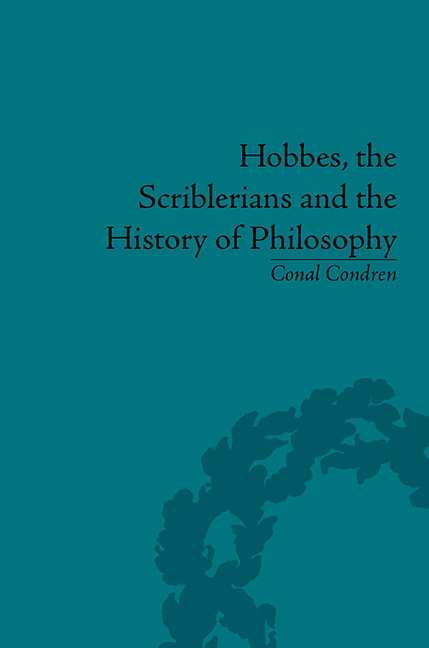Book contents
- Frontmatter
- CONTENTS
- Dedication
- Preface
- Epigraph
- Introduction
- Part I
- Part II
- 3 The Seriousness of the Absurd: The Scriblerian Philosophic Persona
- 4 Identity, Materiality and the Language of Philosophical Absurdity
- 5 Hobbes and the Scriblerians
- Afterword: The History of Early Modern Philosophy: Method, Speech Act and Persona
- Notes
- Works Cited
- Index
4 - Identity, Materiality and the Language of Philosophical Absurdity
from Part II
- Frontmatter
- CONTENTS
- Dedication
- Preface
- Epigraph
- Introduction
- Part I
- Part II
- 3 The Seriousness of the Absurd: The Scriblerian Philosophic Persona
- 4 Identity, Materiality and the Language of Philosophical Absurdity
- 5 Hobbes and the Scriblerians
- Afterword: The History of Early Modern Philosophy: Method, Speech Act and Persona
- Notes
- Works Cited
- Index
Summary
Identity, Persona and the Scope of Office
The Scriblerian satire of the philosophy of human identity has been beautifully explicated by Christopher Fox. But what he treats as a playful engagement with Locke's conception of the person need situating in a wider, if nebulous, context of debate that itself helps explain philosophy's uncertain and contested shape in the early eighteenth century, and the entanglements with what are now distinct disciplines. The very notion of a philosophical persona occurred against the background of a widespread conception of the moral and social world as constituted by personae with spheres of responsibility (above, pp. 7–11). Some of the uncomfortable implications of this now need explicating.
The reliance on a conditional and contextual identity rather than an absolute, fixed and, in Berkeley's expression, abstracted one, constituted a world of what Samuel Pufendorf had called entia moralia. It was a world exhibiting a distrustful awareness of wayward mutability, for a persona was distinct from the relative solidity of physical individuality. On the one side, there was the fear that anyone might make a fraudulent claim on official being and on the other, the belief that people failing in their various personae suffered a radical moral and conceptual transformation. As a corollary, the authority or validity of what one said was frequently a function of an official standing: speaking was speaking as. In many cases, a persona's authority to act could be located within stable institutional environments. But these and the reassuring trappings of social office, such as ceremony, regalia and oath, were never totally secure. Monarchs could be deposed, wives divorced and justification for such actions was through much the same critical vocabulary (see above, pp. 9–10). Concomitantly, conduct in one office could be fluently discussed by reference to another. Thus, in his John Bull satires, Arbuthnot had used marriage and infidelity as an elaborate parodic metaphor for contractarian political rhetoric and what is now deemed resistance theory; and as we will see, the account of Martinus's own marriage was used as a synecdoche for problems of office and the inadequacies of philosophy in dealing with them.
- Type
- Chapter
- Information
- Hobbes, the Scriblerians and the History of Philosophy , pp. 103 - 124Publisher: Pickering & ChattoFirst published in: 2014

